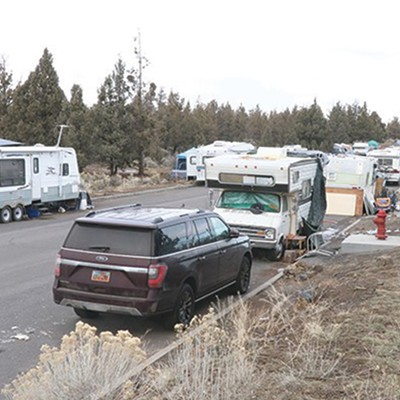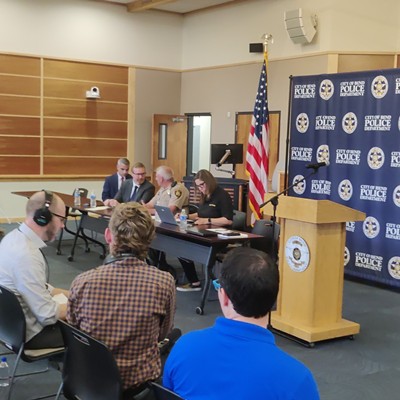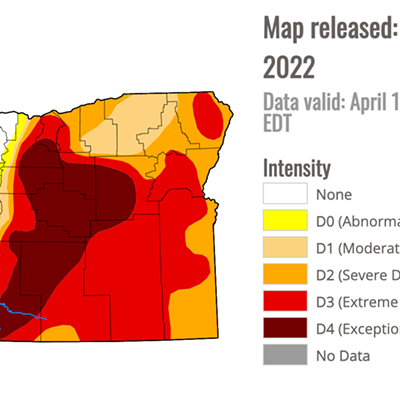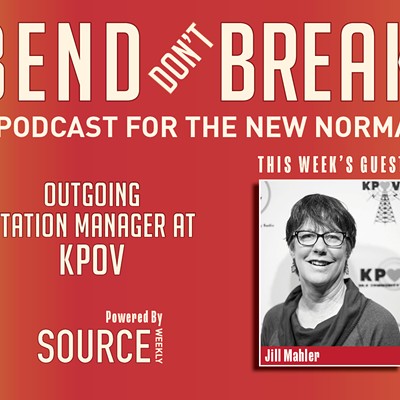When Roger Lee, executive director of economic development for Central Oregon, drives by the new Cascades campus of Oregon State University, he sees the new construction as a symbol of Central Oregon's future.
Some have lamented the change, but with the opening of the new buildings at Bend's Century Drive and Chandler, an academic dream that began 30 years ago is becoming a reality. This month marks the grand opening of the four-year OSU-Cascades campus—an expansion that represents one of the most significant and historic changes in the city of Bend.
Meanwhile, Central Oregon Community College continues to fill an important educational role in the community, and nearly half of all OSU-Cascades students transfer from COCC.
The History of OSU-Cascades
OSU-Cascades opened its doors in 2001 on the COCC campus, offering upper-division and graduate course work. In 2012, Oregon State University endorsed a branch expansion to a four-year university in Bend. The following year the Oregon State Legislature approved capital funding. The purchase of a 10-acre parcel where the new campus is located was finalized in the 2013-14 academic year. An additional 46 acres adjacent to the campus is available for further expansion.
Community Impact
For decades, people have lamented Bend's one-dimensional economy based on recreation and tourism. Some companies shied away from locating in the city because of an inadequate workforce to support their businesses. The new four-year university is helping to change that perception.
EDCO's Lee says the university is beginning to pave the way for a more educated workforce that is trained in the skills needed to grow the economy in Central Oregon.
He says an exciting trend at the university is recruiting professors who have come from the private sector and industry. "That's super valuable in our opinion because they bring with them real world, relevant experience into the classroom." He says this is one of the most important things that students want and need as they move into the skilled workforce. The university promotes small class sizes of about 17 students per instructor.
Another plus for the university is its ability to fill niche needs.
"What this university has already embarked upon and will continue to do is act as a more entrepreneurial version of our other state universities. It doesn't have all the history of the other universities, so it can be very entrepreneurial," says Lee.
As more jobs require technical expertise, Lee sees the University as a catalyst in building economic capacity and critical mass in a number of different industries in Central Oregon. "The University can really step in and help with that by developing programs and offering degrees to meet those industry needs. It's not that liberal arts education isn't of value, but we're seeing more employers who are demanding technical skills." The building products industry, as an example, is still one of the largest employment sectors in Central Oregon that requires specific skills, he says.
The OSU-Cascades Niche
Julie Gess-Newsome, interim academic dean at OSU-Cascades, says that the University will be a significant economic engine for Central Oregon. "As we've planned our programs, we've kept a very strong focus on what the community needs and what we can provide," she explains.
Gess-Newsome says the University is looking at how it expands its curriculum so it becomes a more comprehensive university. For instance, it's considering offering an English degree to expand the liberal studies program. Other plans include expansion of its environmental science program, which she says is a natural opportunity for Central Oregon.
Working with the business community, the University started a computer science program several years ago, which Gess-Newsome anticipates will continue to grow. Another program offering inspired by the local business community is hospitality management—a program unique to the OSU-Cascades campus and not offered at the main Corvallis campus.
Education Innovation
Another unique program is the Energy Systems Engineering program. Building on OSU's strength in engineering studies, it's one of the few accredited programs of its kind in the nation.
When Josh Tibbits of Bend heard about the new ESE program, he immediately knew it was a fit for his future, and a turning point in his life. It was a non-traditional approach to an engineering degree.
Tibbits had studied engineering at the University of Utah in 2000 but found class sizes in the hundreds, creating a disconnect between students and professors.
Tibbits eventually moved to Ashland and became a construction worker and cabinet maker. Then the recession hit, forcing him to close his business. He came to Bend looking for work. After being laid off 11 times, he knew he had to go back to school to finish his degree and acquire new skills.
Today Tibbits works for Element One, a small Bend-based company innovating energy production. His job is to help harness hydrogen power, building small generators as backup power stations for electricity used by telecom companies and other businesses. Hydrogen is one of the most abundant elements on earth, but the challenge is to produce pure hydrogen with no byproducts for efficient use. His research and development focus is also at the forefront of helping utilize natural gas from oil wells that is normally flared or burned off and wasted when the wells are capped.
"What I loved about OSU-Cascades were the smaller classes and interactions with teachers. It was amazing," he says. In the larger school setting at Utah, Tibbits says, the course work was impersonal and interaction was difficult. In terms of faculty, Tibbits feels that the staff the Cascades campus is able to attract is incredible.
OSU-Cascades' Economic Impact
While OSU-Cascades hasn't released a study detailing the specific economic impact of the Bend university on Central Oregon, OSU as a whole released a 2014 report which shows a significant financial impact for the region. The results, compiled by Eugene-based economics firm ECONorthwest, showed the economic impact of Oregon State operations in Deschutes County was $33.3 million in 2014, creating 493 jobs. Student spending created nearly $11 million in economic activity, according to the report. As the University increases its student population, those numbers are expected to grow significantly.
Lee, of EDCO, says a four-year university was the missing piece in Bend. "This was what we didn't have that most other places we compete against do have." That's why when he drives by the campus, he definitely sees the promise for the future. "We have everything else dialed in, and this campus represents a stake in the ground that is our future."



























